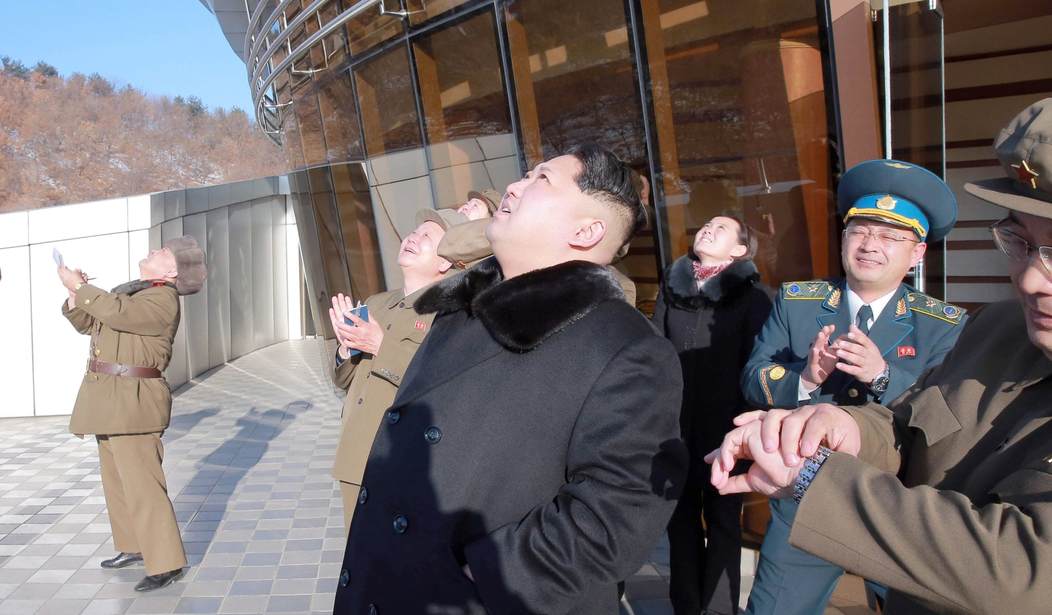WASHINGTON – North Korea will have the ability to strike Los Angeles with intercontinental ballistic missiles in 10 years or less, according to projections from a group of experts who testified Wednesday before a House panel.
During a hearing before the House Financial Services Committee’s subcommittee on monetary policy and trade, Rep. Brad Sherman (D-Calif.) asked witnesses a series of yes-or-no questions surrounding the Democratic People’s Republic of Korea’s ICBM capabilities and American recourse in cutting off finances that North Korea needs to fund the program and its military.
After the panel confirmed the 10-year timeline for a Los Angeles strike, Sherman walked through a number of questions in an attempt to gauge what it would take to get the DPRK to scale back or abandon its missile program. He asked the panel to raise theirs hands if the DPRK’s leader, Kim Jong-un, would be willing to give up his missile program when faced with a 10 percent decrease in GDP output due to financial sanctions. No hands went up.
“This is depressing — unless you’re in the business of building fallout shelters in Los Angeles,” Sherman said.
Sherman’s query on whether North Korea would accept a nuclear monitoring agreement and halt its missile program when faced with total loss of trade with China was also met with skepticism. Anthony Ruggiero, a senior fellow for the Foundation for Defense of Democracies, said that more than a decade of attempts to halt Pyongyang’s hostility has largely been ineffective. In recent years, he pointed out, North Korea has developed its covert enrichment program and built a nuclear reactor in Syria, despite mounting sanctions.
“We know they’re going to cheat,” Sherman said.
As Rep. Ed Royce (R-Calif.) described, the DPRK’s No. 1 strategy is to build ICBMs with the capability of striking the U.S., and leadership’s priorities are maintaining that program and paying for the loyalty of military generals and party leaders. Royce noted one successful attempt in freezing North Korean accounts through targeting Banco Delta Asia, a Macao-based bank that the U.S. Treasury Department has blacklisted. In the mid-2000s, the Bush administration forced the bank to freeze North Korean accounts, driving the DPRK to the nuclear bargaining table. Royce said that shutting off the DPRK’s access to hard currency inhibits North Korea’s ability to fund its military program and its generals, which costs billions of dollars to maintain.
“If their No. 1 goal is to develop, let’s say, 100 ICBMs that can hit the United States, then we need to figure out how to shut down their capability, given their temperament,” Royce said.
Much of Wednesday’s discussion circled around adding sanctions to secondary actors by targeting middlemen in China who serve as liaisons between North Korea and corrupt Chinese officials.
The Associated Press reported this month that Chinese trade with North Korea increased 15 percent in the first five months of 2017 compared to 2016. That includes an 18 percent rise in oil exports and a 34 percent increases in iron ore purchases from the DPRK. William Newcomb, a visiting scholar at the U.S.-Korea Institute, said that while there has been progress with a recent coal export ban, China hasn’t done anything to put a dent in the iron ore trade because the commodity is listed under humanitarian classifications.
Ruggiero said that Chinese officials have no incentive to go after criminal individuals because there’s no Chinese interest. And because there are no punishments, relationships with North Korea are deeply rooted. He said that the U.S. needs to draw a harder line with China, noting that our government fined European banks over $12 billion between 2012 and 2015.
“So we were willing to fine our own allies, but we’re not willing to go after China. I think that’s the problem with our sanctions here,” he said.
John Park, a Korean expert at Harvard University, said that there are three areas in which American and Chinese interests overlap – cracking down on corrupt party officials, the narcotics trade in the China-North Korea border region and North Korean counterfeit efforts with Chinese currency.
“These are areas that I think we can create common ground in targeting Chinese middlemen,” he said.
Sherman, however, described progress with narcotics and counterfeit money as “small victories,” saying that ICBMs are the bigger issue.









Join the conversation as a VIP Member